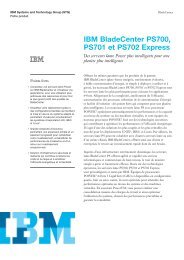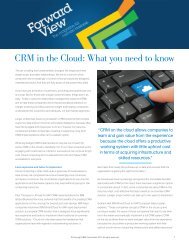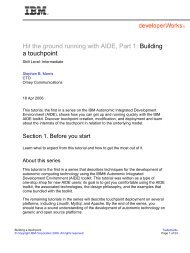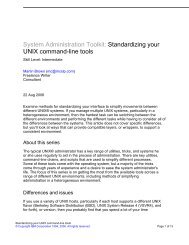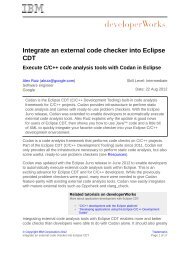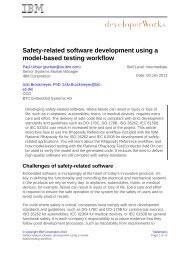Virtual Worlds, Real Leaders: - IBM
Virtual Worlds, Real Leaders: - IBM
Virtual Worlds, Real Leaders: - IBM
Create successful ePaper yourself
Turn your PDF publications into a flip-book with our unique Google optimized e-Paper software.
THE UNSIGHTLY ACRONYM<br />
What are MMORPGs, anyway?<br />
The not-so-short answer is: massively multiplayer online<br />
role-playing games. For the purposes of the discussion<br />
that follows in this report, however, we’ll simply refer to this<br />
mouthful as “online games.” But there are important<br />
distinctions between just any game that can be played<br />
online and MMORPGs.<br />
MMORPGs are a unique and evolving area of online<br />
entertainment. They can bring together millions of<br />
different players who assume digital personalities known<br />
as avatars. Within these online games, each of which<br />
is constructed with different rules and goals, players<br />
interact with each other, form relationships, join guilds<br />
or in-game corporations, and carry out complex and<br />
collaborative missions. Some of the more popular games<br />
include World of Warcraft, Eve Online, and EverQuest.<br />
<strong>Virtual</strong> social worlds, like Second Life, share many of the<br />
same characteristics as MMORPGs, and can develop<br />
leadership capabilities as well. But for the purposes of<br />
this discussion, we will be focused primarily on online<br />
games in which there are set goals and motivating factors.<br />
AVATAR:<br />
A player’s online<br />
character.<br />
GUILD:<br />
A popular term<br />
for a group of<br />
characters working<br />
together towards<br />
a common goal.<br />
GIO 2.0 Report<br />
7





